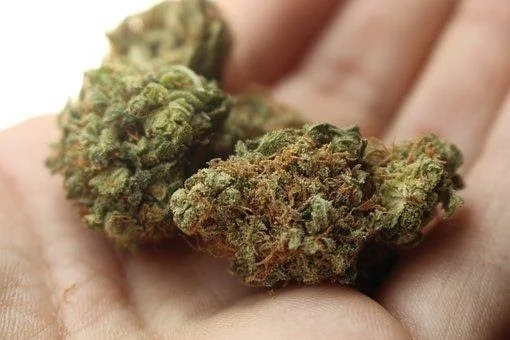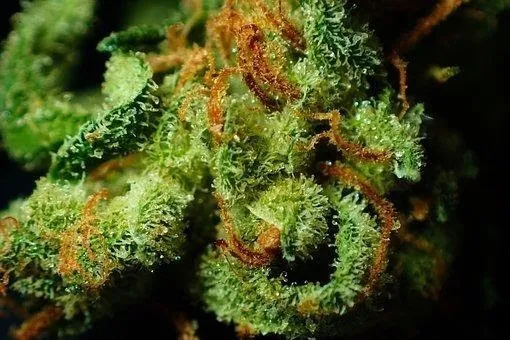Cannabis may have garnered incredible fame in the recent past. However, the herb has been part of alternative medicine for thousands of years. Archeological findings uncovered a few years ago suggest that humans may have used cannabis for at least 2,500 years in treating a range of ailments.
Pain and anxiety are some
medical conditions that cannabis is often prescribed for. Medical marijuana may
also help with inflammatory diseases like inflammatory bowel syndrome (IBS),
sleep disorders like insomnia, skin conditions like acne, etc.
But while marijuana has been used in alternative medicine for thousands of years, clinical research into the plant’s therapeutic claims began much recently. Not only have these studies uncovered additional health benefits in cannabis. They’ve also found that the plant contains numerous compounds that account for its pharmacological properties. One such compound is delta 9 THC.
More About Delta-9 THC
Scientists have since
discovered at least 120 cannabinoids in marijuana. One such compound is
tetrahydrocannabinol, commonly abbreviated as THC.
THC was first discovered
and subsequently isolated from cannabis in 1964 in Israel by Bulgarian-born
chemist Raphael Mechoulam. The compound’s popularity has grown fast and furious
since then, mainly due to its health benefits and effects on the body. THC is
ranked alongside another popular cannabis compound – cannabidiol (CBD) – as the
most popular and widely studied cannabinoids.
Unlike most cannabinoids,
tetrahydrocannabinol exists in isomers. Isomers are compounds with identical
molecular formulae but different structural formulae.
The specific number of
tetrahydrocannabinol isomers depends on how this compound is extracted from
cannabis plant materials. However, the three major THC isomers include delta-9
THC, delta-10 THC, and delta-8 THC.
Delta 9 is the most abundant of all THC isomers. The compound is so common that it’s sometimes used to refer to tetrahydrocannabinol as a whole.
Effects on the Body
Delta 9 behaves pretty
much like other cannabinoids. When consumed, this compound impacts the body via
its interactions with the endocannabinoid system.
The endocannabinoid system
is a complex endocrine regulatory system in animals. The system is involved in
numerous metabolic and physiological functions. Examples
include:
●
Controlling the
body’s hormonal activity.
●
Pain signaling.
●
Regulating
sleep-wake cycles.
● Aiding immune responses.
The endocannabinoid system
stretches from the brain and central nervous system to the body’s peripheral
organs. To function effectively, this system relies on a series of receptors
called endocannabinoid receptors and neurotransmitters called endocannabinoids
(short for endogenous cannabinoids). Examples of endocannabinoid receptors
include CB1 and CB2 receptors. Anandamide is a common endocannabinoid.
Delta-9 THC and other THC isomers impact the body by binding to CB1 receptors. CB1 receptors are more widespread in the brain and central nervous system. Delta-9 THC may also enhance the performance of some neurotransmitters, such as dopamine.
Health Benefits of Delta 9 THC
Pain Relief
Medical marijuana doctors
recommend delta-9 and cannabis primarily for pain relief. Like other THC
isomers, delta-9 combats pain by interfering with how the brain picks up and
interprets pain signals.
According to a 2015 review, tetrahydrocannabinol can improve pain symptoms by an incredible 40%. The review also found that THC is more effective against chronic pain.
Alleviating Inflammation
Delta-9 might help
alleviate a broad spectrum of inflammatory conditions, including inflammatory
bowel disease (IBD), acne, and even some cancers.
THC mainly exerts its anti-inflammatory effects by inhibiting the activation and activity of inflammatory markers, such as cytokines.
Combating Nausea
Medical researchers have
since approved two drugs containing delta-9, namely Nabilone and Dronabinol, to
treat nausea and vomiting among cancer patients on chemotherapy treatments. The
mainstreaming of these drugs was inspired by numerous studies citing THC for
its positive effects on nausea.
A 2010 study revealed that chemotherapy patients who dosed on THC-containing drugs in addition to regular medications exhibited better nausea symptoms than patients that consumed standard treatments alone.
Treating Erectile Dysfunction (ED)
There’s a growing list of
anecdotal reports from users who claim that cannabis helped to supercharge
their sex life. Tetrahydrocannabinol accounts for the majority of marijuana’s
sexual enhancement properties.
THC packs immense
vasodilatory properties. Vasodilators are compounds that expand narrowed blood
vessels, improving blood circulation to various body parts.
THC’s vasodilatory properties may help ramp up blood supply to your sexual organs. That results in stronger and longer erections.
Boosting Sleep
Consuming delta-9 supplements before bedtime may boost your sleep by shortening sleep onset time.
Will Delta-9 Get You High?
THC is the primary
psychoactive chemical in cannabis, and delta-9 is the most potent THC isomer.
Therefore, delta-9 will undoubtedly get you high.
THC’s mind-altering
effects come from this compound mainly interacting with CB1 receptors located
closer to the brain and central nervous system.
The following are common symptoms of delta-9 intoxication;
●
Hallucinations
●
Euphoria
●
Reduced hand-eye coordination
●
Reduced motor activity
● Blood-shot eyes
Final Word
Delta-9 tetrahydrocannabinol is the most potent THC isomer. This compound accounts for the majority of THC’s medicinal and psychoactive properties. To make the most of delta-9, remember to consume it in moderation.










0 Comments